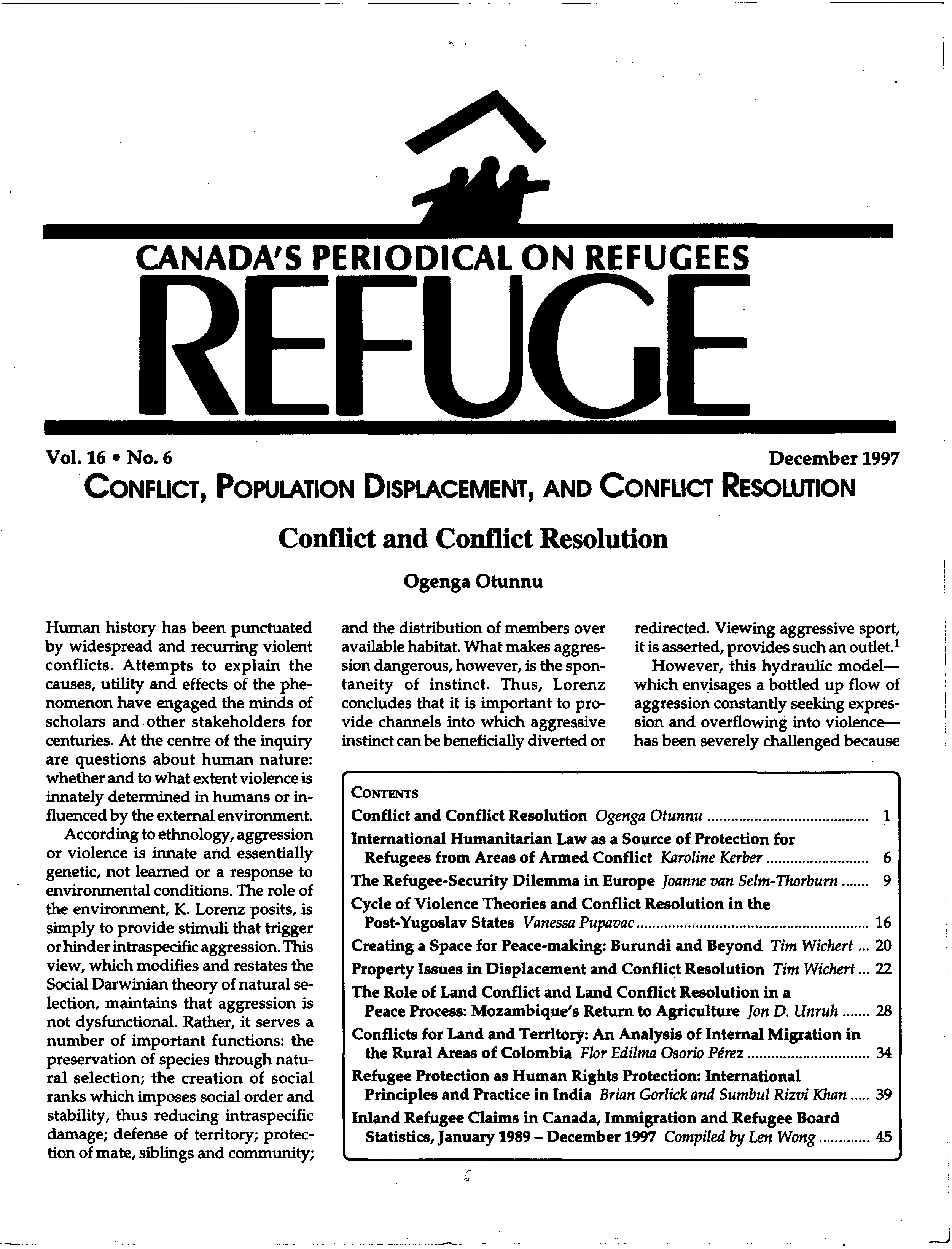Cycle of Violence Theories and Conflict Resolution in the Post-Yugoslav States
DOI :
https://doi.org/10.25071/1920-7336.21946Mots-clés :
Yugoslavia, NGOs, peace education, conflict resolution, psychosociology, pathologization, otheringRésumé
Cet article examine la mise en place de programmes non-gouvernementaux dans les états de l'ex-Yougoslavie. Les initiatives actuelles en matière de résolution de conflit s'inspirent des théories de la déviance et de la notion de cycle de la violence. Les programmes en question supposent donc que le conflit est la résultante d'une culture de la violence. Un certain nombre d'organisations non-gouvernementales ont pourtant exprimé leurs doutes sur l'efficacité du présent travail d'éducation à la paix, mais les problèmes auxquelles elles font face sont souvent mal compris. Une des causes non nommée de ce fait est que les habitants des régions sont déjà familiers avec le concept d'éducation à la paix, mais pour en avoir observé l'échec. Il est ironique de constater que la Yougoslavie d'après-guerre joua un rôle très important dans le développement du champs de l'éducation à la paix et fut érigée en modèle à suivre par les autres pays en matière de gestion des conflits ethniques.Statistiques
Téléchargements
Publié-e
Comment citer
Numéro
Rubrique
Licence
© Vanessa Pupavac 1997

Cette œuvre est sous licence Creative Commons Attribution - Pas d'Utilisation Commerciale 4.0 International.
Les auteurs qui publient dans Refuge conservent le droit d’auteur associé à leur œuvre, et octroient au public une licence Creative Commons Attribution - Utilisation non commerciale 4.0 International. La licence permet l’utilisation, la reproduction et l’adaptation du matériel avec attribution par tous moyens et sous tous formats pour des fins non commerciales. Pour des informations générales sur les licences Creative Commons, visitez le site Creative Commons. Pour la licence CC BY-NC 4.0, consultez le résumé lisible par l'homme.







